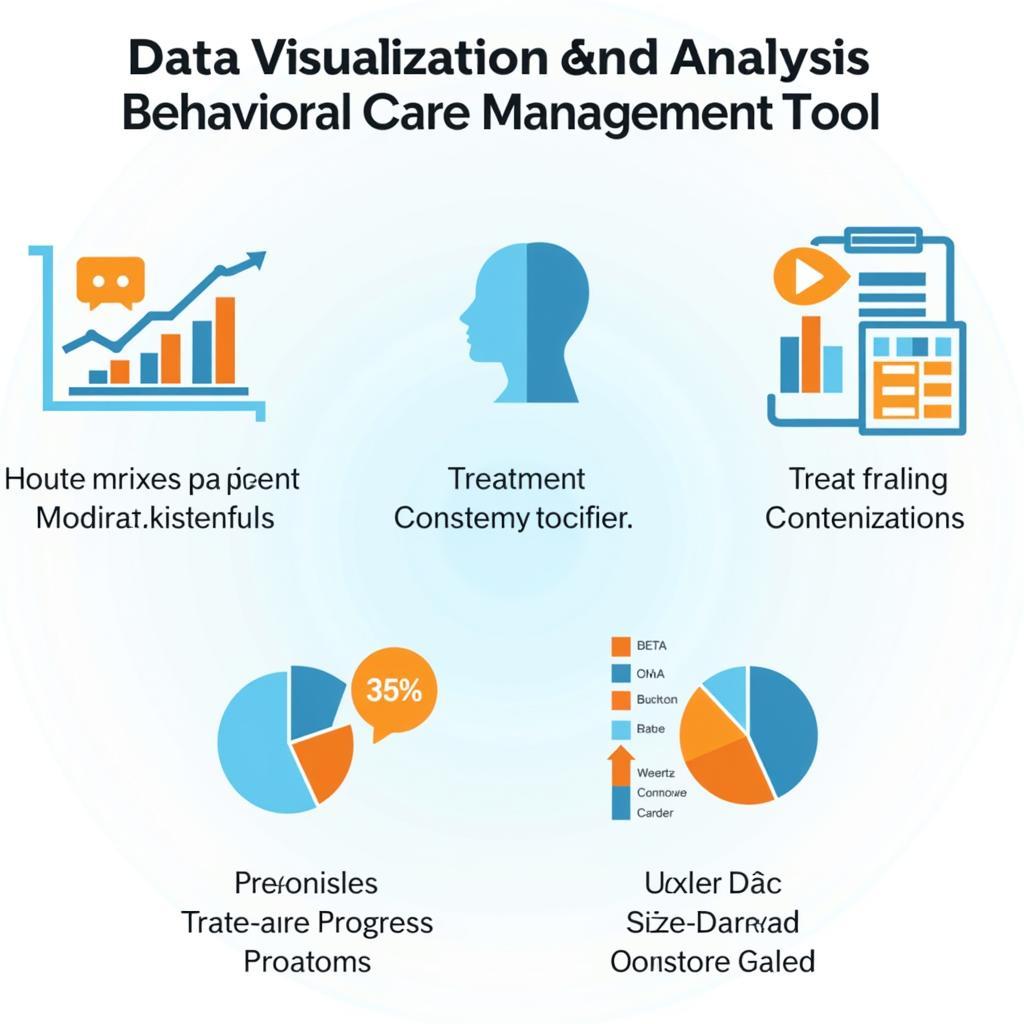Behavioral care management tools are crucial for delivering effective and personalized healthcare. These tools help providers understand, track, and address patients’ behavioral health needs, leading to improved outcomes and overall well-being. Behavioral health is intricately linked to physical health, and using these tools allows for a more holistic approach to patient care.
Integrating behavioral care management tools streamlines workflows, enhances communication between providers and patients, and promotes data-driven decision-making. These tools can be particularly helpful in managing chronic conditions, addressing substance abuse, and providing support for mental health challenges. Furthermore, they empower patients to take an active role in their care. They provide access to resources and support that enable individuals to better understand their conditions and make informed decisions about their treatment. For healthcare providers, these tools offer invaluable support in assessing, planning, and monitoring patient progress.
Understanding the Need for Behavioral Care Management Tools
Why are behavioral care management tools so essential in today’s healthcare landscape? The increasing prevalence of mental health disorders and substance abuse, coupled with the recognition of the strong link between behavioral health and physical health, necessitates more comprehensive and integrated approaches to care. Traditional methods often fall short in addressing the complexities of behavioral health, leading to fragmented care and suboptimal outcomes. Behavioral care management tools bridge this gap by providing a structured framework for assessment, intervention, and ongoing support.
This is where tools like the Dementia Care & Psychotropic Medication Tracking Tool become indispensable for healthcare professionals. By providing a systematic approach to tracking medication and monitoring patient response, these tools can significantly improve the quality of care for individuals with dementia.
 Behavioral Care Management Tools Integration
Behavioral Care Management Tools Integration
Key Features of Effective Behavioral Care Management Tools
Effective behavioral care management tools should incorporate several key features to ensure optimal functionality and usability. These features include:
- Comprehensive Assessment Capabilities: The tools should facilitate thorough assessments of patients’ behavioral health status, including screening for mental health disorders, substance use, and other relevant factors.
- Personalized Treatment Planning: Based on the assessment results, the tools should support the development of individualized treatment plans tailored to each patient’s specific needs and preferences.
- Progress Monitoring and Tracking: Tools should enable ongoing monitoring of patient progress and track key outcomes, allowing providers to make data-driven adjustments to the treatment plan as needed.
Furthermore, effective tools should offer seamless integration with other healthcare systems, such as electronic health records (EHRs), to facilitate information sharing and care coordination. User-friendly interfaces are essential for both patients and providers to ensure ease of use and adoption.
 Patient-Centered Behavioral Care Management
Patient-Centered Behavioral Care Management
Screening Tools for Dementia in Primary Care are crucial for early detection and intervention. These tools allow healthcare professionals to identify individuals at risk and connect them with appropriate resources and support. Similarly, the Continuing Health Care Assessment Tool aids in evaluating the ongoing needs of patients and tailoring care plans accordingly.
Benefits of Implementing Behavioral Care Management Tools
Implementing behavioral care management tools offers numerous benefits for both patients and healthcare providers. These tools contribute to improved patient outcomes, enhanced patient engagement and satisfaction, and increased efficiency in care delivery. Let’s delve deeper into each benefit:
- Improved Patient Outcomes: By providing a structured framework for assessment and intervention, these tools can lead to better management of behavioral health conditions, resulting in improved overall health and well-being.
- Enhanced Patient Engagement and Satisfaction: Empowering patients to actively participate in their care through self-monitoring and access to resources increases their engagement and satisfaction with the treatment process.
 Behavioral Care Management Data Analysis
Behavioral Care Management Data Analysis
Tools such as the Assessment Tools Used in Aged Care are specifically designed to address the unique needs of older adults, ensuring comprehensive and personalized care. These tools assist in assessing various aspects of health, including physical, cognitive, and emotional well-being. Additionally, the Escala Critical Care Pain Observation Tool (CPOT) plays a vital role in pain management, particularly in critical care settings.
Conclusion
Behavioral care management tools are indispensable for providing high-quality, patient-centered care in today’s complex healthcare environment. By leveraging these tools, healthcare providers can enhance their ability to assess, diagnose, and treat behavioral health conditions, ultimately leading to improved patient outcomes and overall well-being. These tools empower patients to take an active role in their care and contribute to more efficient and effective healthcare delivery. Integrating behavioral care management tools is essential for addressing the growing need for comprehensive and integrated behavioral healthcare services.
FAQ
- What are the most common types of behavioral care management tools? These include electronic health records (EHRs) with integrated behavioral health modules, specialized software platforms, mobile apps, and telehealth tools.
- How do these tools improve patient engagement? By providing access to resources, self-monitoring tools, and communication platforms, these tools empower patients to take an active role in their care.
- Are these tools suitable for all healthcare settings? Yes, they can be adapted for use in various settings, including primary care, hospitals, mental health clinics, and substance abuse treatment centers.
- What are the key considerations for choosing a behavioral care management tool? Factors to consider include the specific needs of the patient population, integration capabilities with existing systems, user-friendliness, and cost.
- How do these tools support data-driven decision-making? They collect and analyze patient data, providing insights into treatment effectiveness, patient progress, and areas for improvement.
- What are the security and privacy considerations for using these tools? HIPAA compliance is crucial, and data encryption and secure storage are essential for protecting patient information.
7.. How can healthcare providers ensure effective implementation of these tools? Provider training, ongoing technical support, and regular evaluation of tool effectiveness are essential for successful implementation.
If you need further assistance, please contact us via WhatsApp: +1(641)206-8880, Email: [email protected] or visit us at 910 Cedar Lane, Chicago, IL 60605, USA. We have a 24/7 customer support team available to help.

Leave a Reply